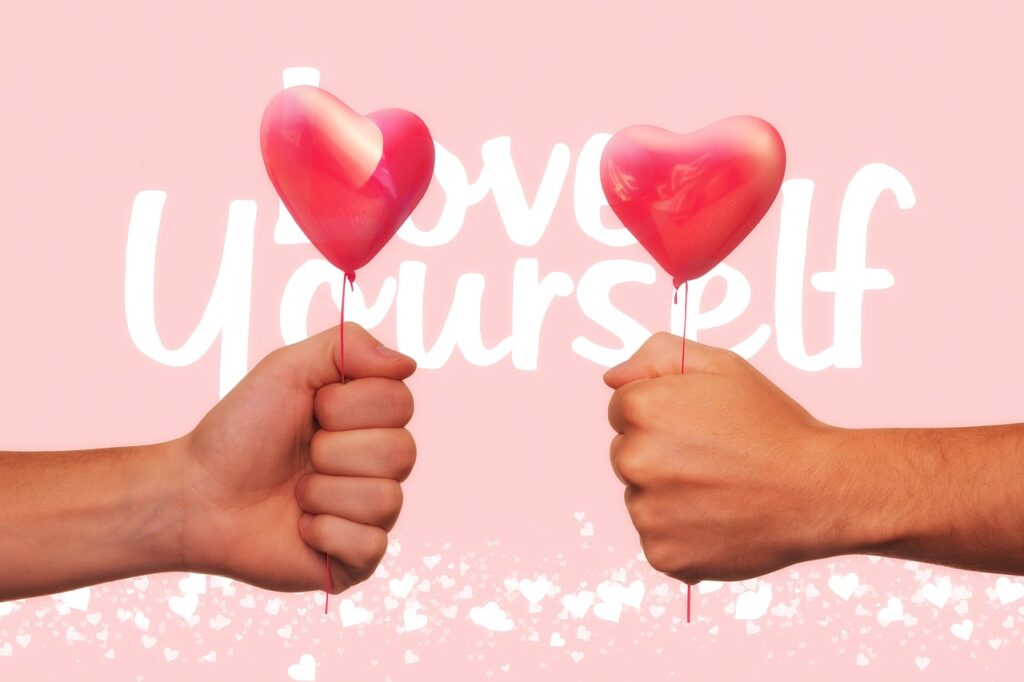Could it be possible you hate yourself too much?
Self-hatred is more than simply not liking yourself. When you suffer with self-hatred, you’ll constantly put yourself down and feel like you aren’t good at anything.
Here, we’ll look at what self-hatred is, the impact it can have on your life and how you can stop it in its tracks.
Understanding self-hatred
Self-hatred is basically like having a little bully sat inside your head. You will experience constant criticizing thoughts, pointing out your flaws and mistakes. Just some common self-hatred thoughts you might experience include:
- You’re a loser
- Why did you event try, you knew you would fail.

- You aren’t good enough
- Why can’t you just be normal?
You’ll put yourself down and compare yourself to others frequently. Self-hatred tends to develop over time and is triggered by more than one event.
How can it impact your life?
Although self-doubt is healthy, self-hatred is not. If you struggle with self-hatred, it can have a devastating impact on your life. Often the feelings of self-hatred worsen over time and can lead to destructive behaviors as you try and numb the negative self-talk.
Many people who suffer with self-hatred go on to develop destructive behaviors such as cutting themselves, develop eating disorders or turn to drugs and alcohol. It can impact every aspect of your life including your relationships, your career, and the friends you include in your life. You may also stop caring about the things you used to enjoy and avoid things that make you feel better.
The impact it can have on your life makes it important to treat quickly, rather than ignore it. The question is, how can you eliminate self-hatred?
Ways to eliminate self-hatred from your life
There are many ways to eliminate self-hatred from your life. Learning how to tame your inner bully is a great first step. So, when you notice that inner voice telling you negative things about yourself, switch it around. Stop those negative thoughts in their tracks and turn them into a positive.
So, if your inner bully says, “you aren’t worth anything,” switch it to “I may feel like I am not worthy, but I know that I am.” The more you counteract the negative with positive thoughts, the more positive your mind will become.
You can also make a list of all your strengths. If you struggle to come up with some, ask those closest to you. When you focus on your strengths, you won’t be too caught up in your weaknesses.
Finally, work on building up self-compassion. That is, treat yourself the exact same way you would treat a good friend. Would you beat them up for making a mistake? If not, why do it to yourself?
Overall, self-hatred can be a powerful thing to overcome since it builds up over time. However, the tips above can help you to start quieten your inner bully and develop a little more self-compassion.
So What About Self-Love?

Common Self-Love Obstacles People Face
When you are trying to practice self-love, you’re going to run into a few obstacles along the way. These can really derail your progress if you aren’t prepared. By being aware of the common obstacles, you can take steps to prevent them. So, let’s look at some of the most common obstacles people face when trying to practice more self-love.
You aren’t surrounded by positive, healthy relationships
A major obstacle to self-love is toxic people. If you are surrounded by people who drain your energy and have a negative outlook, you’re going to struggle to practice self-love.
Surround yourself with positive, healthy relationships. While all relationships go through hard times, for the most part they should lift you up and make you feel positively about yourself. So, if you have relationships which cause you more misery than happiness, now is the time to start taking a step back and focusing on healthier, happier relationships. After all, you’ll struggle to love yourself if you are surrounded by people who make you feel bad.
Feelings of guilt and selfishness
Another big barrier to practicing self-love is feelings of guilt and selfishness. It is common to feel like self-love is selfish. This can lead to feelings of guilt when you attempt to focus more on yourself.
You need to understand the importance of self-love. It isn’t just a luxury, it’s a necessity for your health and wellbeing. It certainly isn’t selfish so you absolutely shouldn’t feel guilty for trying to love yourself more.
Needing to be perfect
Perfectionism is a major obstacle to self-love. While a little perfectionism can be a good thing, especially in business, it can also lead to disappointment, frustration, and unhappiness. 
When you feel like everything must be perfect, you aren’t going to be happy when you fall short. So, try and let go of your need to be perfect. Understand what draws your perfectionism and identify your triggers. Remember, nobody is perfect, not even yo
Not understanding how to love yourself
Finally, another barrier is not understanding how to love yourself. Many people don’t fully understand what self-love means. They mistakenly think it is about doing things you want to do, rather than what you need.
Self-love isn’t just about treating yourself; it is about making sure you are fulfilling your needs. For example, if you want to lose weight, indulging in junk food isn’t going to help, even though it might be brining temporary joy. Instead, a healthier diet and exercise routine is considered a form of self-love as it helps you to become healthier and fulfils the body’s needs.
These are just some of the common obstacles to self-love you need to be aware of. By being aware, you’ll be able to figure out how to overcome them if they do arise. Finding people, you trust and who build you up is a big part of being able to practice self-love. However, don’t forget to be your own personal cheerleader too.

